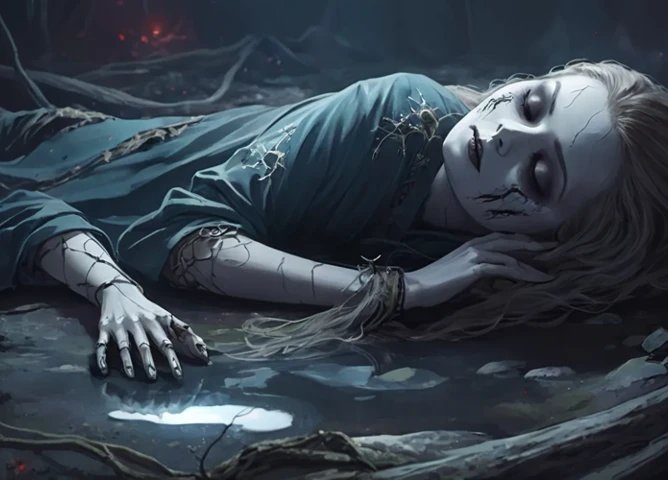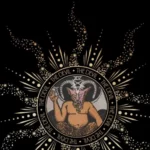Dreams are mysterious and often leave us feeling perplexed, as they offer glimpses into the depths of our subconscious mind. In Hindi culture, dreams hold a significant place, and their symbolism is highly valued. One common and intriguing dream experience is seeing a dead body. The meaning behind encountering a deceased person in a dream can vary greatly depending on the individual and the context of the dream. By delving into the symbolism and decoding the messages that these dreams hold, we can gain a deeper understanding of our emotions, relationships, and subconscious thoughts. In this article, we will explore the significance of dreaming in Hindi culture, decode the symbolism of seeing a dead body, discuss common scenarios, offer interpretations, identify factors affecting interpretation, and provide tips for processing and dealing with these dreams. So, let’s embark on a journey to unravel the mysteries of dreams and discover the hidden meanings behind seeing a dead body in dreams in Hindi.
Contents
- Why Do We Dream?
- The Significance of Dreaming in Hindi Culture
- Decoding the Symbolism: Seeing a Dead Body in Dreams
- Common Scenarios of Seeing Dead Bodies in Dreams
- Interpreting the Symbolism of Seeing a Dead Body in Dreams
- Factors Affecting the Interpretation
- How to Process and Deal with These Dreams?
- Conclusion
-
Frequently Asked Questions
- 1. How common is it to dream of seeing a dead body?
- 2. Are dreams always trying to convey a specific message or meaning?
- 3. Can seeing a dead body in a dream be a sign of something ominous?
- 4. Is there a cultural significance to dreaming of a dead body in Hindi culture?
- 5. Can seeing a dead body in a dream indicate a need for closure?
- 6. What should I do if I frequently have dreams involving dead bodies?
- 7. Can dreams about dead bodies be manifestations of fear or anxiety?
- 8. Are there any positive interpretations of dreaming about a dead body?
- 9. Can the interpretation of dreams about dead bodies change over time?
- 10. Should I be concerned if I don’t remember my dreams, including those involving dead bodies?
- References
Why Do We Dream?
There are various theories and beliefs about why we dream, and it remains a subject of ongoing research and speculation. One theory suggests that dreams serve as a way for our brain to process and consolidate memories and information gathered throughout the day. Another belief is that dreams help fulfill our unfulfilled desires or serve as a means of wish-fulfillment. Dreaming also allows our subconscious mind to express and explore emotions and thoughts that may be suppressed in our waking life. Additionally, some experts propose that dreams act as a cognitive simulation, allowing us to practice and prepare for real-life situations. The exact purpose and function of dreams continue to elude us, and they remain a fascinating and enigmatic aspect of human experience.
The Significance of Dreaming in Hindi Culture
In Hindi culture, dreams hold a deep significance and are believed to be a powerful source of guidance and insight. Dreams are considered to be a means of communication between the conscious and the divine realms. They are seen as messages from deities, ancestors, or the universe itself. Dream interpretation, known as ‘Sapno ka Matlab’ in Hindi, is practiced by individuals who believe in harnessing the wisdom and guidance found in dreams. These interpretations often take into account cultural symbols, myths, and traditional beliefs. Dreaming is seen as a way to connect with the spiritual realm and gain valuable insights about one’s past, present, and future. Many Hindi scriptures and texts also contain references to dreams, emphasizing their significance in guiding individuals along their life’s journey.
Decoding the Symbolism: Seeing a Dead Body in Dreams
When it comes to dreams, seeing a dead body holds powerful symbolism that can provide insight into our subconscious thoughts and emotions. The interpretation of this symbol is not a one-size-fits-all approach and can vary based on individual experiences and cultural beliefs. However, there are some common themes that may help in decoding the meaning. One possible interpretation of seeing a dead body in dreams is related to fear and anxiety, representing our internal worries and concerns. It can also signify a stage of transition and transformation, indicating a significant change or ending in our lives. Encountering a dead body in dreams may be connected to feelings of grief and loss, symbolizing unresolved emotions and the need for healing. By exploring the symbolism behind seeing a dead body in dreams, we can gain a deeper understanding of ourselves and the messages our subconscious mind is trying to communicate.
1. Fear and Anxiety
Seeing a dead body in a dream can often be associated with feelings of fear and anxiety. The presence of a deceased person may evoke a sense of unease or foreboding, reflecting our inner anxieties and concerns. This may stem from a fear of mortality or an underlying fear of loss and the unknown. The dream may be an expression of our subconscious mind trying to process and confront these fears. It is important to note that the interpretation of dreams is highly subjective, and the specific context and emotions surrounding the dream play a crucial role in understanding its meaning. Exploring and reflecting on these feelings can provide valuable insights into our own fears and anxieties, helping us to address and overcome them in our waking life.
2. Transition and Transformation
Transition and transformation are common themes associated with seeing a dead body in dreams. This symbolism often represents significant changes or shifts occurring in an individual’s life. The presence of a dead body may signify the end of a particular phase or situation and the beginning of something new. It may suggest that the dreamer is going through a period of personal growth, letting go of old patterns or beliefs, and embracing a new chapter. This dream can serve as a reminder of the importance of embracing change and the potential for growth and renewal that comes with it. By navigating through these transitions, individuals have the opportunity to evolve and transform into their best selves.
3. Grief and Loss
The presence of a dead body in dreams can often symbolize feelings of grief and loss. It may represent the process of mourning, especially if the dreamer has recently experienced the death of a loved one or is going through a period of emotional distress. Seeing a dead body in a dream might be the mind’s way of processing and coming to terms with the loss, allowing for a cathartic release of emotions. This dream scenario can also serve as a reminder to cherish the time spent with loved ones and to appreciate the fragility of life. It is important to pay attention to the emotions evoked by the dream and to allow oneself the space and support needed to grieve and heal.
Common Scenarios of Seeing Dead Bodies in Dreams
When it comes to dreaming about seeing dead bodies, there are several common scenarios that people may experience. One scenario is encountering an unknown dead body in the dream. This can evoke feelings of mystery, fear, or unease as the dreamer grapples with the unfamiliar presence. Another scenario involves coming across a familiar dead body, such as a deceased loved one or acquaintance. This type of dream can evoke a range of emotions, including grief, longing, or even closure. Multiple dead bodies in a dream is another scenario that may occur, and it can amplify feelings of shock, horror, or overwhelm. Each of these scenarios holds its own significance and may offer insights into the dreamer’s emotions, relationships, or subconscious thoughts. Exploring these scenarios and their symbolism can help unlock the deeper meaning behind the presence of dead bodies in dreams.
1. Unknown Dead Body
Encountering an unknown dead body in a dream can evoke a range of emotions and interpretations. The presence of an unfamiliar deceased person may symbolize the emergence of repressed fears or unresolved feelings, which can create a sense of unease or anxiety. This dream scenario might also represent a metaphorical death or ending in one’s life, suggesting the need for personal transformation or letting go of past situations. Exploring the emotions and context surrounding the dream can provide further insight into the specific symbolism of encountering an unknown dead body in one’s dreams.
2. Familiar Dead Body
Encountering a familiar dead body in a dream can evoke a wide range of emotions and signify different meanings. The presence of a familiar deceased person may symbolize unresolved feelings or unfinished business with that individual. It could indicate a need for closure or a desire to reconnect with aspects of oneself associated with that person. Alternatively, seeing a familiar dead body may represent the loss of a specific relationship or the end of a certain phase in one’s life. Exploring the emotions and memories connected to the familiar dead body in the dream can provide valuable insights into one’s own personal experiences and emotions.
3. Multiple Dead Bodies
Seeing multiple dead bodies in a dream can evoke a range of emotions and symbolize various aspects of our subconscious mind. It is important to consider the context and specific details of the dream to interpret its meaning. In some cases, multiple dead bodies may represent overwhelming emotions or difficulties we are facing in our waking life. It could be a reflection of feeling burdened by responsibilities or experiencing a sense of loss on multiple fronts. Alternatively, it might signify a significant change or transformation taking place in our lives, where different aspects of our old self or past experiences are coming to an end. Exploring the emotions and details surrounding the multiple dead bodies in the dream can help unravel its specific message and provide insights into our inner thoughts and experiences.
Interpreting the Symbolism of Seeing a Dead Body in Dreams
Interpreting the symbolism of seeing a dead body in dreams involves delving into the emotions, relationships, and subconscious thoughts that are associated with the dream. It is crucial to reflect on the emotions evoked during the dream, such as fear, sadness, or even curiosity, as they can provide valuable insights into our waking life. Analyzing the relationships between the dreamer and the dead body, whether it is a known or unfamiliar person, can offer clues about unresolved issues or hidden emotions. Exploring the subconscious mind and its deeper meanings is another essential aspect of interpretation. Our dreams often contain symbols and metaphors that reflect our deepest desires, fears, and unresolved conflicts. By unraveling these symbols, we can gain a better understanding of ourselves and use the messages from our dreams to guide personal growth and self-discovery.
1. Reflecting on Emotions
Reflecting on emotions is a crucial aspect of interpreting the symbolism behind seeing a dead body in dreams. When we encounter a deceased person in our dreams, it can evoke a range of emotions such as fear, sadness, or even relief. Paying attention to the specific emotions we feel within the dream can provide valuable insights into our subconscious feelings and experiences. It may indicate unresolved grief, anxieties, or even hidden desires that need attention. By examining and acknowledging these emotions, we can gain a deeper understanding of ourselves and the underlying issues affecting our well-being. This self-reflection process can be facilitated through practices like journaling, meditation, or engaging in open and honest conversations with trusted individuals. Understanding and processing our emotions is an essential step towards unlocking the meaning of these dreams.
2. Analyzing Relationships
Analyzing relationships is another important aspect of interpreting the symbolism behind seeing a dead body in dreams. The presence of a deceased person in a dream can bring to light unresolved issues, hidden emotions, or strained connections in our relationships. It prompts us to reflect on the nature of our interactions with others and assess any underlying tensions or unresolved conflicts. Paying attention to the emotions evoked by the dream and examining the dynamics between ourselves and the deceased person can provide valuable insights into the state of our relationships. It may uncover feelings of guilt, resentment, or longing that we need to address in order to foster healthier and more fulfilling connections with our loved ones. Understanding the significance of relationships in the dream context can serve as a catalyst for personal growth and improve our overall emotional well-being.
3. Exploring the Subconscious Mind
Exploring the subconscious mind is another important aspect of decoding the symbolism behind seeing a dead body in dreams. Our subconscious mind holds hidden desires, fears, and unresolved emotions that may manifest in our dreams. When we encounter a deceased person in a dream, it can serve as a window into our subconscious and bring to light aspects of ourselves that we may be unaware of or have been avoiding. Analyzing the feelings and emotions that arise during these dreams can provide valuable insights into our deepest thoughts and desires. By acknowledging and exploring these hidden aspects of ourselves, we can gain a better understanding of our inner world and potentially achieve personal growth and healing. So, let’s delve deeper into the mysteries of our subconscious mind and unlock the secrets that lie within.
Factors Affecting the Interpretation
Interpreting the meaning of seeing a dead body in dreams can be influenced by various factors. Cultural beliefs play a significant role, as interpretations can differ based on the specific cultural context. Personal experiences also contribute to the interpretation, as past encounters with death or loss can shape how we perceive and understand these dreams. Additionally, one’s emotional state at the time of dreaming can impact the interpretation, as emotions can color our perception and reaction to the dream. It is essential to consider these factors while exploring the symbolism and meaning behind seeing a dead body in dreams, as they contribute to the unique and subjective nature of dream interpretation. Understanding these factorscan help us uncover a more nuanced and personal understanding of our dreams.
1. Cultural Beliefs
Cultural beliefs play a significant role in interpreting the symbolism of seeing a dead body in dreams. In Hindi culture, dreams are often seen as a spiritual connection to the divine or a means of receiving messages from ancestors or deities. The interpretation of seeing a dead body may vary based on religious beliefs and cultural practices. For example, some may perceive it as a sign of impending danger or a call for spiritual purification. Others may view it as a symbol of transformation or rebirth. The cultural context in which the dream occurs can provide valuable insights into the meaning and significance attached to seeing a dead body. Understanding the cultural beliefs surrounding dreams allows for a more nuanced interpretation of these experiences.
2. Personal Experiences
Personal experiences play a significant role in the interpretation of dreams, including the symbolism of seeing a dead body. Each person brings their own unique set of experiences, memories, and emotions to their dream world. These experiences can influence the way a person perceives and understands the symbolism in a dream. For example, someone who has recently experienced the loss of a loved one may interpret seeing a dead body in a dream as a manifestation of their grief and longing. On the other hand, a person who has a fear of death may interpret the same dream as a reflection of their anxiety and fear. Personal experiences shape the lens through which we view our dreams, and understanding these experiences can provide valuable insights into the meaning and significance of our dream imagery.
3. Emotional State
The interpretation of dreams, including those involving seeing a dead body, is also influenced by an individual’s emotional state. Our emotions can color our dream experiences and affect how we perceive and react to the symbolism presented in our dreams. For example, someone who is experiencing high levels of stress or anxiety in their waking life may have dreams of encountering dead bodies that reflect these negative emotions. On the other hand, individuals who are feeling content and at peace may have dreams of dead bodies that evoke a sense of acceptance or closure. It is important to consider our emotional state when interpreting dream symbolism, as it can provide valuable insights into our current mental and emotional well-being. By acknowledging and addressing our emotions, we can better understand the messages our dreams are trying to convey.
How to Process and Deal with These Dreams?
Processing and dealing with dreams of seeing a dead body can be a complex and emotional task. Here are some approaches that can help navigate through these dreams and their potential impact on our well-being. 1. Self-Reflection and Journaling: Take time to reflect on the emotions and symbols present in the dream. Write down your thoughts, feelings, and any connections you may make. Journaling can provide insights and serve as a tool for self-discovery. 2. Seeking Professional Help: If these dreams are causing significant distress or interfering with daily life, consider reaching out to a therapist or counselor who specializes in dream analysis or trauma. They can provide guidance and support in exploring the deeper meanings of these dreams. 3. Engaging in Emotional Healing Practices: Practices like meditation, mindfulness, and emotional release techniques can help process and release emotions connected to these dreams. It’s important to remember that dreams are subjective, and their interpretation may vary from person to person. The key is to approach these dreams with introspection and open-mindedness, allowing them to provide valuable insights into our subconscious mind. Understanding the Meaning of Seeing a Dead Body in Dreams.
1. Self-Reflection and Journaling
Self-reflection and journaling can be powerful tools for processing and understanding dreams, including those involving seeing a dead body. Start by creating a dream journal where you can record details of your dreams, including any emotions or sensations felt during the dream. Regularly reviewing and reflecting on your dream journal can help identify patterns, recurring themes, and emotions associated with seeing a dead body in your dreams. Additionally, you may find it helpful to ask yourself questions about the dream, such as what the dead body represents to you and how it made you feel. This process of self-reflection can provide deeper insights into the underlying symbolism and meaning of your dreams. Anchoring this practice with self-reflection and journaling can facilitate a personal and introspective journey of understanding.
2. Seeking Professional Help
Seeking professional help can be beneficial for anyone who is experiencing distress or confusion due to frequent or disturbing dreams involving seeing a dead body. A qualified therapist or dream analyst can provide guidance and support in understanding the symbolism and meaning behind these dreams. They can help explore any underlying emotions, traumas, or unresolved issues that may be surfacing in the dreams. Through therapy sessions, individuals can gain insights, process their emotions, and develop coping strategies to navigate their dreams and the emotions they evoke. Professional help can offer a safe and supportive space to explore and address the deeper meanings and implications of these dreams. If you feel overwhelmed or unable to make sense of your dreams on your own, reaching out to a professional can be a beneficial step towards finding clarity and emotional healing.
3. Engaging in Emotional Healing Practices
Engaging in emotional healing practices can be beneficial in processing and dealing with dreams that involve seeing a dead body. These practices aim to address the underlying emotions, trauma, or unresolved issues that may be causing distress. Some effective emotional healing practices include therapy, counseling, or support groups. Professional help can provide a safe and supportive space to explore and work through the emotions connected to the dream. Additionally, practices such as meditation, mindfulness, and self-care can aid in managing stress and promoting emotional well-being. It is important to find the approach that resonates with you and facilitates healing on a deeper level.
Conclusion
In conclusion, dreams hold a deep significance in Hindi culture, offering a window into the subconscious mind. The experience of seeing a dead body in a dream is laden with symbolism, reflecting feelings of fear, anxiety, transition, grief, and loss. By interpreting these dreams, we can gain valuable insights into our emotions, relationships, and hidden thoughts. Factors such as cultural beliefs, personal experiences, and emotional state play a role in how we interpret these dreams. To process and deal with these dreams, self-reflection, journaling, seeking professional help, and engaging in emotional healing practices can be beneficial. While the exact meaning of seeing a dead body in dreams may vary for each individual, the exploration of the symbolism invites us to delve deeper into our unconscious mind and better understand ourselves. So, let us embrace the mysteries of dreams and unravel the secrets they hold.
Frequently Asked Questions
1. How common is it to dream of seeing a dead body?
Dreaming of seeing a dead body is relatively common, as dreams often tap into our fears, anxieties, and deep emotions. The frequency of such dreams varies among individuals and can be influenced by personal experiences and cultural beliefs.
2. Are dreams always trying to convey a specific message or meaning?
Dreams can have multiple interpretations, and not all dreams have a definitive message or meaning. Sometimes, dreams serve as a reflection of our subconscious thoughts and emotions, while in other cases, they may be a result of random brain activity.
3. Can seeing a dead body in a dream be a sign of something ominous?
While seeing a dead body in a dream might be unsettling, it doesn’t necessarily mean something ominous or negative. Dream symbolism is highly personal and can signify various emotions, experiences, or transitions. It is important to consider individual context and emotions when interpreting dream symbols.
4. Is there a cultural significance to dreaming of a dead body in Hindi culture?
Yes, in Hindi culture, dreams hold great importance. They are believed to provide insights into one’s life, relationships, and future. However, the interpretation of dreams, including seeing a dead body, can also be influenced by individual beliefs and experiences within the culture.
5. Can seeing a dead body in a dream indicate a need for closure?
Yes, seeing a dead body in a dream can sometimes symbolize unresolved issues or a need for closure. It may be a subconscious manifestation of emotions related to past events, relationships, or unresolved grief. Reflecting on the specific circumstances of the dream can offer insights into these areas.
6. What should I do if I frequently have dreams involving dead bodies?
If you frequently have dreams involving dead bodies and these dreams cause distress, it can be helpful to explore the emotions and underlying thoughts associated with them. Journaling, seeking support from a therapist or dream analyst, and engaging in healing practices can aid in processing and understanding these dreams.
7. Can dreams about dead bodies be manifestations of fear or anxiety?
Yes, dreams of dead bodies can be indicative of fear or anxiety. They might reflect apprehensions about mortality, loss, or change. Understanding the context and emotions surrounding the dream can provide insight into the specific fears or anxieties being symbolized.
8. Are there any positive interpretations of dreaming about a dead body?
While dreaming about a dead body is often associated with negative emotions, it can also have positive interpretations. It might represent the end of a challenging phase, personal growth, or a desire for transformation and rebirth. Examining the dream in its entirety can help uncover these positive meanings.
9. Can the interpretation of dreams about dead bodies change over time?
Yes, the interpretation of dreams, including those featuring dead bodies, can evolve over time. As personal circumstances, experiences, and emotions change, so too can the symbolism and meaning associated with these dreams. It is important to re-evaluate and reflect on the dreams within the context of one’s current life situation.
10. Should I be concerned if I don’t remember my dreams, including those involving dead bodies?
Not remembering dreams is a common experience, and it is not necessarily a cause for concern. While remembering dreams can offer insights, the absence of dream recall does not indicate a lack of subconscious activity. Practicing good sleep hygiene, keeping a dream journal, and paying attention to any residual emotions upon waking can help improve dream recall.







